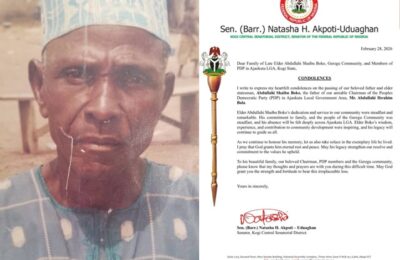In an age where ambition is mistaken for purpose and self-promotion for success, the true measure of a life well lived is not in what one gathers but in what one surrenders. The call to be “available for the Master’s use” is not an antiquated religious cliché—it is the very axis upon which meaningful destiny turns.
At the heart of Christian faith lies the conviction that human potential finds its highest fulfillment only in divine hands. The Apostle Paul, writing to Timothy, declared, “If a man therefore purge himself from these, he shall be a vessel unto honour, sanctified, and meet for the master’s use, and prepared unto every good work” (2 Timothy 2:21). In a world obsessed with self-expression, this passage confronts us with a counter-cultural truth: the vessel’s value lies not in its design but in its willingness to be filled and poured out by its Maker.
History affirms this pattern. The great revivalists—Charles Spurgeon in England, Jonathan Edwards in America, Apostle Ayo Babalola in Africa, and Kathryn Kuhlman whose very breath trembled with surrender—all testified that God is not seeking the most talented, but the most yielded. As Kathryn once whispered, “God is not looking for golden vessels or silver vessels. He is looking for yielded vessels.” This simple truth unmasks the pride of our age and recalls us to humility.
The moral lesson is sharp: we often begin by seeking platforms, yet heaven begins by seeking purity. We run after relevance, yet eternity demands repentance. We chase recognition, yet the Spirit seeks consecration. The paradox of divine purpose is that the man who bows lowest is lifted highest, and the woman who hides longest in the secret place shines brightest in the open.
Consider Moses, reluctant and stammering, who became God’s mouthpiece before Pharaoh. Consider Mary, obscure and young, who became the womb of redemption. Consider Peter, once broken by denial, who became the rock upon which the Church was built. None were chosen because of their polish; all were chosen because they became available.
In modern Christianity, the temptation is strong to reduce ministry to metrics—followers, views, conferences, and influence. Yet, the Gospel resists commodification. Pastor Chris Oyakhilome once warned that “God’s greatest search is not for your skill, but for your heart. He can anoint ability, but He cannot anoint pride.” Availability, therefore, is not passive resignation; it is active readiness. It means laying aside self-will and echoing the words of Christ in Gethsemane: “Not my will, but Yours be done.”
The implications ripple beyond pulpits into boardrooms, classrooms, parliaments, and homes. A teacher who offers her craft to God becomes more than an instructor; she becomes a shaper of destinies. A businessman who yields his integrity to God becomes more than a trader; he becomes a kingdom financier. A leader who submits his ambition to God becomes more than a politician; he becomes a steward of nations.
The challenge of availability is urgent because God’s call is not static. To delay surrender is to risk disqualification. Evangelist Yinka Yusuf once thundered, “When God calls, He equips. But if you delay, He replaces.” Destiny does not wait at the door forever; opportunity passes to the vessel that is empty enough to be filled.
Yet, availability is costly. It requires cleansing—separating from sin, pride, bitterness, and distractions that clog the vessel. It demands courage—stepping into assignments that exceed human strength. It insists on consistency—staying faithful when applause fades. Above all, it requires intimacy with the Master Himself, for no vessel can know its purpose apart from its Potter.
At the core, this is not about function but about surrender. Life is not measured by how much we accomplish but by how much we yield. The prophet Isaiah, upon beholding the holiness of God, did not volunteer his résumé; he simply said, “Here am I; send me.” That timeless cry still echoes through the corridors of eternity, seeking men and women whose availability outweighs their ambition.
In conclusion, the greatest honor a human being can ever receive is not a throne, a title, or a legacy carved in marble. It is to be called, cleansed, and commissioned as a vessel in the hands of the Eternal. For when the clay is yielded, the Potter is glorified. And in the words of Bishop David Oyedepo, “Until you are ready to be God’s vessel, you remain a consumer of destiny rather than a contributor to it.”
The question, therefore, is not whether God can use you. The question is whether you are available.
– Inah Boniface Ocholi writes from Ayah – Igalamela/Odolu LGA, Kogi state.
08152094428 (SMS Only)




